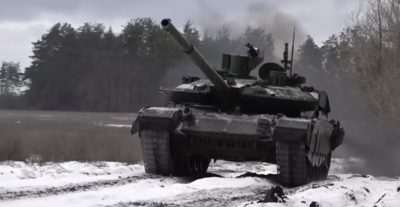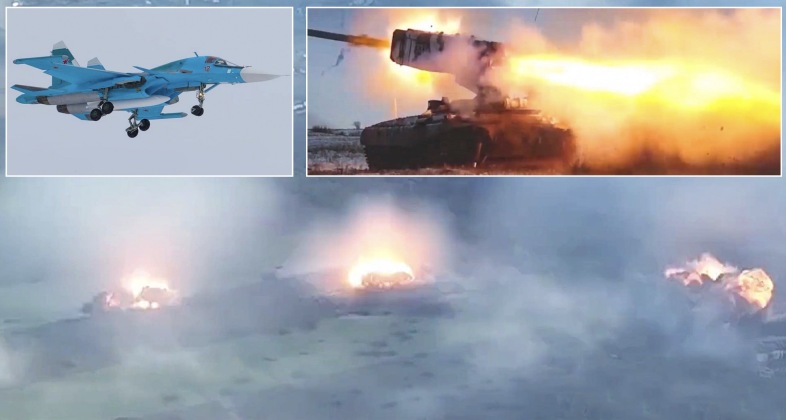Russian Strikes Across Frontlines Destroy Hundreds of Tons of Ukrainian Munitions: Attrition Limiting Ukraine’s Ability to Sustain War

All Global Research articles can be read in 51 languages by activating the Translate Website button below the author’s name.
To receive Global Research’s Daily Newsletter (selected articles), click here.
Click the share button above to email/forward this article to your friends and colleagues. Follow us on Instagram and Twitter and subscribe to our Telegram Channel. Feel free to repost and share widely Global Research articles.
***
The Russian Military has reportedly seriously depleted Ukrainian weapons stockpiles with a series of major strikes on its ammunition depots, which Western sources have assessed could seriously undermine prospects for a successful renewed Ukrainian offensive that was previously expected to begin imminently.
On May 1 it was reported that a railway echelon with up to 200 tons of Ukrainian munitions had been destroyed in a Russian missile strike in Donetsk, and separately that Russian forces destroyed two missile divisions’ worth of S-300 air defence systems in an attack on Ukrainian depots in Pavlograd in the Dnepropetrovsk Region. The latter strike reportedly also saw Grom-2 tactical ballistic missile systems destroyed. A third strike saw an ammunition depot of the Ukrainian 127th Mechanised Brigade in the Kharkov Region destroyed. This followed the destruction of a network of Ukrainian arms manufacturing facilities providing key sources of munitions on the night of April 30. These attacks come as both Ukrainian and Western sources have warned that the Ukrainian Military is falling increasingly short of munitions, particularly for its air defences which could soon end its ability to maintain air denial on the frontlines. The destruction of increasingly scarce S-300 missile systems follows a successful air strike that destroyed four missile launchers for Ukrainian S-300s on April 27, which indicates that placing further pressure on Ukraine’s increasingly strained surface to air missile network may be being prioritised.

Su-34 Fighter and TOS-1A Artillery Strikes in Ukraine (Source: Military Watch Magazine)
The destruction of key war materials comes amid indications that Russia has escalated strikes on Ukrainian frontline positions, where personnel suffered particularly high rates of attrition in the preceding days. On April 29 the Ukrainian Military and accompanying foreign military contractors reportedly took 575 casualties in Donetsk alone in just 24 hours, which was followed by a report on May 1 that 330 Ukrainian troops had been “destroyed” in the same region in 24 hours and the ammo depot of the Army’s 53rd Mechanised Brigade wiped out. April 24 had also seen Georgian Legion foreign fighters take heavy losses in Donetsk to a precision strike using Iskander ballistic missiles. Heavy attrition for Ukrainian and allied forces comes amid growing speculation that the war may be nearing a turning point that would favour Russia, amid warnings that Ukrainian cities may soon become unviable, reports of a massing Russian reservist force equipped with hundreds of new T-90M tanks and other equipment, and a near collapse of Ukrainian air defences which could allow the Russian Air Force to play a much greater role. Polish Armed Forces Chief of General Staff Rajmund Andrzejczak accordingly warned in the final week of April that Ukraine was in a far poorer position to sustain the war effort than Russia, in part due to the failure of Western economic warfare efforts to cripple the Russian economy, but that many Western leaders failed to realise how far Ukraine was from winning the war.
*
Note to readers: Please click the share button above. Follow us on Instagram and Twitter and subscribe to our Telegram Channel. Feel free to repost and share widely Global Research articles.
Featured image: Russian T-90M Tank Operating Ukraine (Source: Military Watch Magazine)

